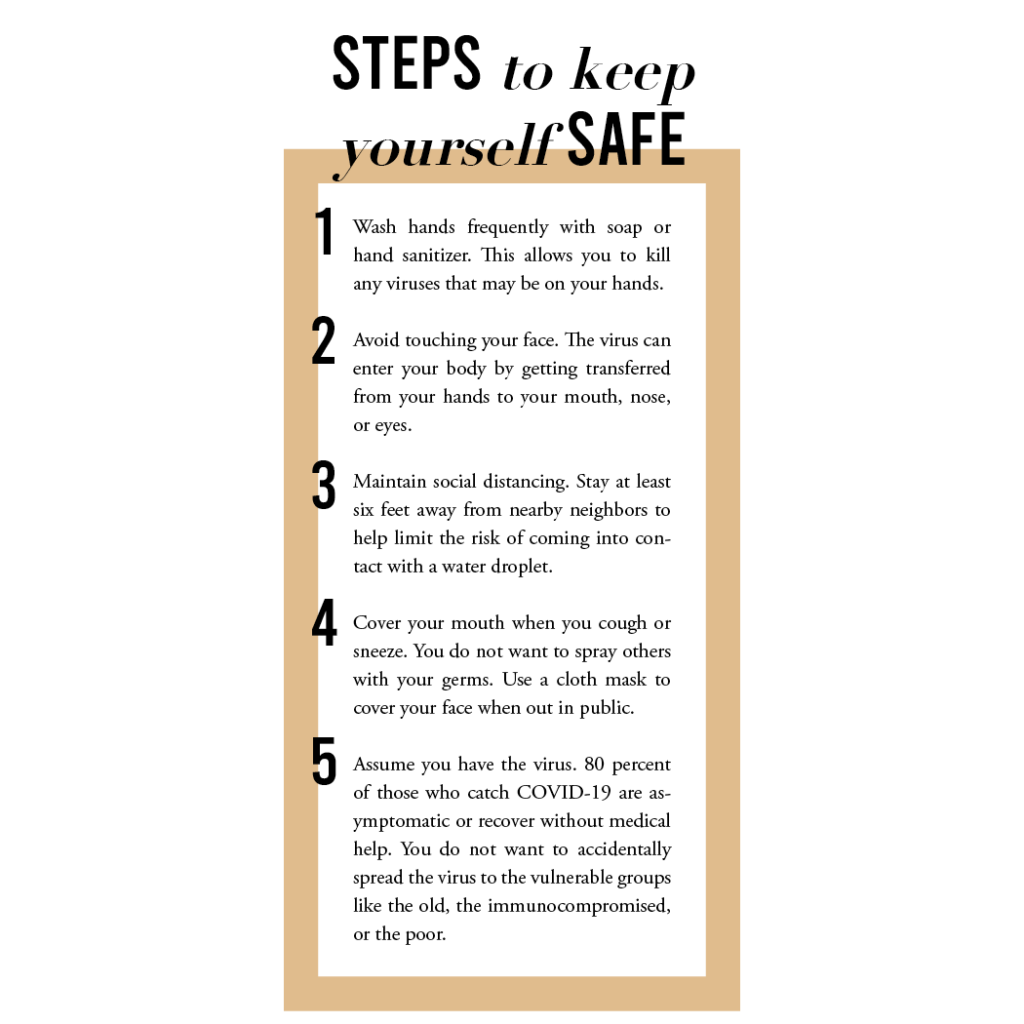
Daniel Ku
Contributing Writer
With more than 1.6 million infections and more than 100,000 deaths spread across 213 countries and territories, the effect of COVID-19 can be felt across the globe. First reported by China on Dec. 31 to the World Health Organization, the disease quickly grew in size and was declared a public health emergency of international concern on Jan. 30. Since then, nations across the globe have begun the fight against the pandemic with a mixture of lockdown rules and mass testing.
COVID-19 belongs to a family of viruses known as coronaviruses. Ranging from the common cold to diseases such as Severe Acute Respiratory Syndrome (SARS), COVID-19 is the newest coronavirus discovery. The virus spreads when an individual comes in contact with small droplets from an infected person’s airway through actions such as coughing, talking, and breathing.
The virus has an estimated incubation period (the time between catching the virus and showing symptoms) of one to fourteen days with an average of five days. There have been some claims that those who get COVID-19 can spread the virus to others before the incubation period ends.
Common symptoms include tiredness, fever, and dry cough. Other rarer symptoms include diarrhea, loss of taste, and runny nose. An estimated 80 percent of the population recover without medical help.
The death rate is estimated to be from one percent to as high as four percent. Although this may not seem like much, one percent of the population of the US is three million people. People with pre-existing conditions, obesity, and/or advanced age are especially vulnerable to COVID-19.
For more information on COVID-19 visit the CDC or WHO websites.
Steps by the University

Steps to Keep Yourself Safe

Fact & Fiction about COVID-19












Great Article. Thank you for this important article shared with us.
Wonderful Post! I think you should write more on this topic.
Comments are closed.